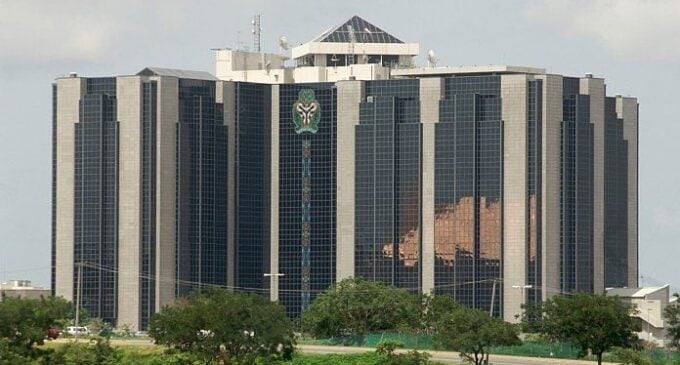CBN’s risky move on banking giants

BY SYLVESTER OSEGHALE
One of the most trending accusations that has trailed the Central Bank of Nigeria’s decision to dissolve the boards of Union, Keystone, and Polaris banks and replace them with their appointed teams involves allegations of non-payment and connections to prominent public officials. In a system with fact-checking capabilities, it’s perplexing that these corporate red flags are presented as regulations, and our level of concern doesn’t seem as high as it should be.
The acquisitions of Keystone and Polaris Banks from CBN and AMCON, for instance, were carried out by local investors through documented processes. Similarly, Union Bank’s acquisition by foreign investors had available records, with major acquisitions approved by the CBN. These established processes and documented transactions provide avenues for verification and underscore the importance of relying on accurate information when assessing the circumstances surrounding these banks.
What has further cast doubt on the sincerity of the apex bank is the mode of the dissolution. The boards received no written notice from the CBN before the unilateral action, and such improper communication raises questions about transparency and adherence to established legal procedures. It’s important to emphasise that the legal foundation the central bank used for these actions should not supersede Section 36 of the Nigerian Constitution, which explicitly ensures a fair hearing for everyone. This inconsistency highlights the necessity for examination and clarification regarding the legal justification behind the CBN’s decisions.
The banks impacted argue that, as per legal obligations, they should have received an examination report detailing regulatory concerns and suggesting required actions. Unfortunately, the CBN departed from this procedure, violating its own laws and established practices. This deviation raises questions about fairness and transparency, leaving the banks without crucial information to address regulatory issues. The lapse in following standard procedures highlights the necessity for a thorough examination of the CBN’s actions and their conformity to legal frameworks.
A concerning aspect of the situation is that the banks’ shareholders were excluded from discussions that resulted in the dissolution of their boards. Additionally, the CBN’s failure to provide a formal letter explaining the basis of the intervention is noteworthy. Shareholders discovered the decision through media outlets and social platforms, bypassing official channels.
This absence of direct communication erodes transparency and engagement principles, leaving stakeholders uninformed and detached from pivotal decisions impacting their interests. The importance of establishing clear and direct communication channels is evident, emphasising the need to uphold principles that promote openness and meaningful engagement in significant matters.
Shareholders have raised alarms about the breach of fair hearing provisions outlined in the Banks and Other Financial Institutions Act 2020, and unfortunately, it has fallen on deaf ears. The CBN’s use of Section 12 of BOFIA suggests a preconceived decision to revoke licenses without involving shareholders in a meaningful discussion about the alleged non-compliance. This prompts significant concerns about the observed due process and underscores the necessity for a comprehensive scrutiny of the CBN’s actions to ensure compliance with legal frameworks and fairness principles in regulatory interventions.
The CBN defended its intervention, citing corporate governance lapses and regulatory non-compliance. However, these claims remain largely unsupported due to the rushed nature and the absence of a fair hearing underlying their actions against the banks. This quick and seemingly arbitrary approach creates uncertainty, fostering doubt and speculation. The lack of proper justification raises questions about the fairness and adherence to due process by the CBN in making this consequential decision.
Regardless of the CBN’s defence, the suddenness of their actions and the absence of transparency give rise to concerns about potential hidden motives and political influences, particularly in light of Nigerian banks’ associations with specific regions. This polarising perception poses a risk to the constitutional rights of shareholders and threatens public trust in the financial system. Trust is vital for economic growth, deposit mobilisation, extending loans to MSMEs, and the overall prudent functioning of the financial sector. Upholding transparency and steering clear of any appearance of political influence is essential to preserving the stability and effectiveness of the financial system.
To sum up, the CBN must refrain from seizing banks based on unverified allegations to avoid unjust regulatory actions. This is crucial to prevent negative repercussions on both local and foreign investors, potentially hampering Nigeria’s ability to attract international investments. Maintaining transparency and following due process is paramount for fostering a favourable investment climate and building trust in the regulatory landscape. Nigerians are watching.
Oseghale is a lecturer and public affairs analyst based in Abuja. He can be contacted via [email protected]
Views expressed by contributors are strictly personal and not of TheCable.















There are no comments at the moment, do you want to add one?
Write a comment